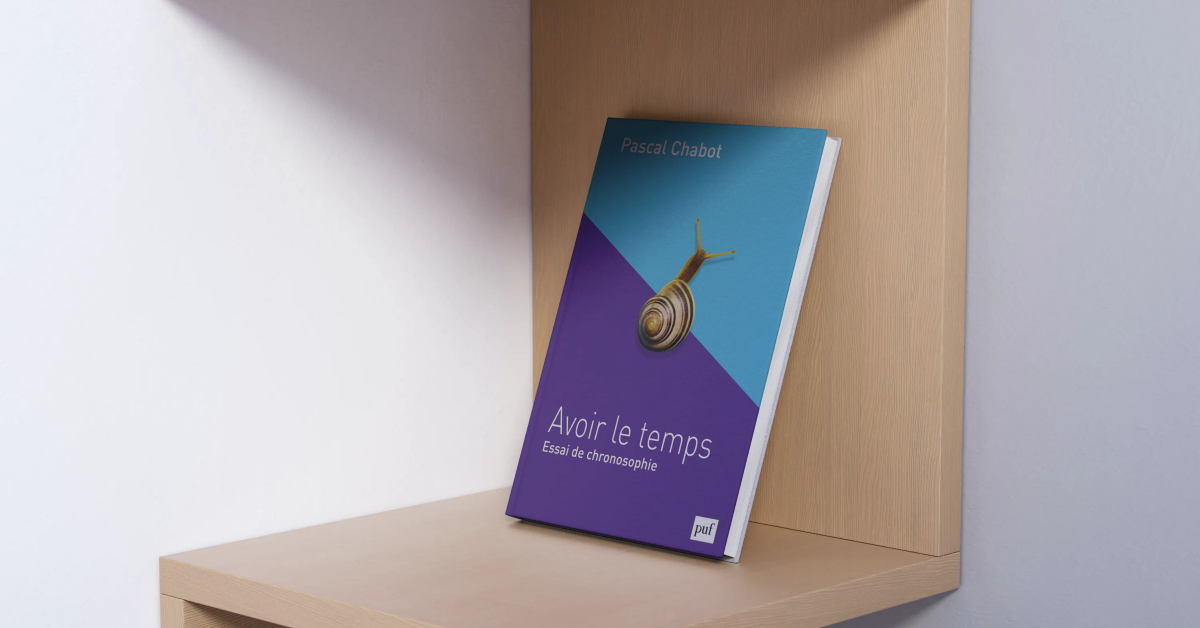"Avoir le temps", the new book by Pascal Chabot
To mark the launch of his 10th and most recent book, Pascal sent us a few lines to explain the genesis of this project:
"Avoir le temps" is a book that has been a part of me for ten years. I started writing it several times, but was ultimately unsuccessful because I was unable to conjure a non-melancholy version of our relationship to temporality. It was based on an intellectual transposition of the song "Avec le temps" by the wonderful Léo Ferré. However, that was precisely what I wanted to avoid, because that tone didn’t seem conducive to charting new territory. It was during the first lockdown that the main idea took shape: to abandon the traditional ontological connection of time (the connection between time and being, brilliantly presented by Heidegger) in order to unearth the other connection, the one between time and having…and the two elements appeared. First, the paradox: we have time, and yet we don’t have it, we are constantly running out of it. The peculiar thing about our relationship to time is that we have what we do not have…then the discovery of multiplicity: we have different kinds of relationship with time, and I classify these under four major civilisational registers: Destiny, Progress, Hypertime (screens, urgency, etc.) and Time Limit (as concerns the ecological "catastrophe")… The mistake that should be avoided is to believe that we live in only one of these registers. In fact, we are constantly switching from one to the other. This is what makes the contemporary experience so fascinating and yet also disturbing, because temporalities are on a constant collision course. The key is therefore to choose the appropriate temporality to deal with such and such an issue. This is the only way that we can nurture a more relaxed relationship with temporality, because it is then that quality time emerges, and not just quantities of time… This is what I refer to as a "chronosophy", a wisdom of time. I am convinced that one of the most profound changes that a person can make concerns his or her relationship with time. After that, everyting else falls into place!"
You can find "Avoir le temps" on the website of the publisher PUF

Summary
To be is to have time. And to never have time is to half live, to adopt a semi-existence. The peculiarity of our civilisation is to live simultaneously under four colliding temporal regimes: Destiny, Progress, Hypertime and the Time Limit of ecological catastrophe. These provide both the wondrous complexity of our lives as well as the dreaded dead ends. This is because our attitude towards time has the most profound impact on our lives. We chart a course between nostalgia for the past, addiction to the present and hope for a bright future. So which temporality should we favour? In contemporary Hypertime, time is everywhere and yet nowhere. How can we find it? The whole challenge is to construct a wisdom concerning time that is commensurate with the current challenges we face: a chronosophy.*
*Book summary found on the website of the publisher PUF